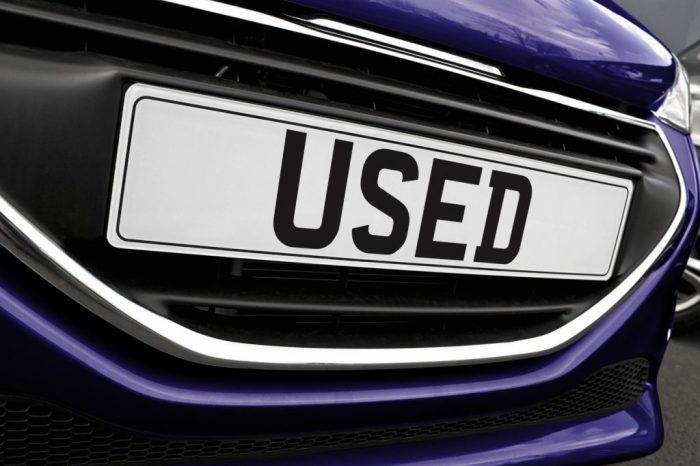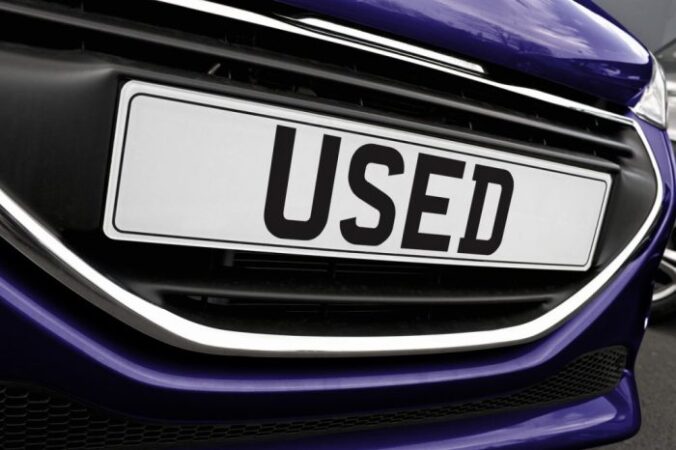
Do lemon laws apply to used cars? This question often arises for buyers who encounter significant problems with their pre-owned vehicles. While lemon laws are primarily designed to protect consumers from defective new cars, some states extend these protections to used vehicles under certain conditions. Understanding these nuances is crucial for used car buyers to know their rights and potential recourse if they encounter a lemon.
Lemon laws aim to ensure fairness in the automotive marketplace by providing consumers with a means to address persistent defects. While the specific requirements and protections vary from state to state, the core principle remains the same: to provide a remedy for vehicles that fail to meet a reasonable standard of quality. This article explores the complexities of lemon laws as they apply to used cars, outlining the eligibility criteria, state-specific variations, and the rights and remedies available to consumers.
Lemon Laws

Lemon laws are consumer protection laws designed to help buyers of new and, in some cases, used vehicles that have persistent problems. These laws provide recourse for consumers who have purchased a vehicle that repeatedly fails to meet basic standards of quality and reliability.
History and Purpose of Lemon Laws
Lemon laws were first enacted in the United States in the 1970s to address the growing issue of defective new cars. The original intent was to protect consumers from being stuck with vehicles that were essentially unusable due to repeated repairs. Over time, these laws have evolved to cover a wider range of vehicles and situations.
Defining a Lemon Vehicle
While the specific criteria for a “lemon” vehicle may vary slightly from state to state, there are some common elements:
- The vehicle must have a significant defect that affects its safety, performance, or value.
- The defect must be present despite multiple attempts to repair it.
- The vehicle must have been taken to an authorized repair facility for the defect to be addressed.
- The vehicle must have been out of service for a significant amount of time due to repairs.
Examples of Defects That Qualify as a Lemon
The following are some examples of common defects that could qualify a vehicle as a lemon:
- Engine problems: Repeated engine failure, excessive oil consumption, or persistent misfiring.
- Transmission issues: Difficulty shifting gears, slipping gears, or complete transmission failure.
- Electrical problems: Frequent electrical malfunctions, including issues with the lights, radio, or other electrical systems.
- Braking problems: Faulty brakes, brake failure, or issues with the anti-lock braking system.
- Safety defects: Problems with airbags, seatbelts, or other safety features.
- Suspension and steering problems: Loose steering wheel, excessive vibration, or difficulty handling.
State-Specific Lemon Law Variations: Do Lemon Laws Apply To Used Cars

While the core principles of lemon laws are similar across states, there are significant variations in their application and specific provisions. These differences can impact the protection offered to used car buyers. Understanding these state-specific variations is crucial for used car purchasers to navigate their rights effectively.
Variations in Lemon Law Provisions Across States, Do lemon laws apply to used cars
The differences in lemon law provisions across states can be substantial, affecting the scope of protection offered to used car buyers. Key areas of variation include:
- Eligibility Criteria: States differ in their requirements for a used car to qualify under the lemon law. Some states may require the vehicle to have been purchased within a specific time frame, while others may have mileage limitations.
- Number of Repair Attempts: The number of repair attempts required to trigger lemon law protection varies significantly. Some states may require only two repair attempts, while others may require four or more.
- Definition of a “Defect”: States have varying definitions of what constitutes a “defect” under the lemon law. Some states may include only major defects, while others may cover minor defects that significantly affect the vehicle’s usability.
- Remedies Available: The remedies available under lemon laws also vary. Some states may only allow for a refund or replacement, while others may offer additional options, such as compensation for lost wages or inconvenience.
States with Strong Lemon Law Protections for Used Cars
Several states have robust lemon law protections for used car buyers. These states often have broader eligibility criteria, more lenient repair attempt requirements, and a wider range of remedies available.
- California: California’s lemon law is considered one of the most consumer-friendly in the nation. It applies to both new and used vehicles, with no mileage restrictions.
- New Jersey: New Jersey’s lemon law also provides strong protection for used car buyers. It covers vehicles purchased within the past 12 months or with less than 12,000 miles.
- Massachusetts: Massachusetts has a comprehensive lemon law that applies to both new and used vehicles. It includes provisions for both repair and replacement remedies.
Key Differences in Lemon Law Provisions
The following table highlights some key differences in lemon law provisions across various states:
| State | Eligibility Criteria | Repair Attempts | Definition of Defect | Remedies Available |
|---|---|---|---|---|
| California | Purchased within 4 years or 40,000 miles | 2 attempts | Substantial defect that affects the vehicle’s usability | Refund, replacement, or other compensation |
| New Jersey | Purchased within 12 months or 12,000 miles | 3 attempts | Defect that significantly impairs the vehicle’s value | Refund, replacement, or other compensation |
| Massachusetts | Purchased within 1 year or 12,000 miles | 4 attempts | Defect that significantly impairs the vehicle’s usability | Refund, replacement, or other compensation |
| Texas | Purchased within 2 years or 24,000 miles | 4 attempts | Defect that significantly impairs the vehicle’s value | Refund, replacement, or other compensation |
| Florida | Purchased within 2 years or 24,000 miles | 3 attempts | Defect that substantially impairs the vehicle’s usability | Refund, replacement, or other compensation |
Consumer Rights and Remedies

While lemon laws primarily focus on new vehicles, some states extend protection to used cars, particularly if the vehicle was sold with a warranty. Understanding your rights and remedies is crucial if you believe you’ve purchased a lemon used car.
Consumer Rights Under Lemon Laws for Used Cars
Consumers who believe they have purchased a lemon used car have specific rights under state lemon laws, though the extent of these rights varies by state. These rights typically include:
- The right to have the vehicle repaired at no cost to you.
- The right to a replacement vehicle if the repairs are unsuccessful.
- The right to a refund of the purchase price if the repairs are unsuccessful or if the vehicle has a substantial defect that cannot be repaired.
Remedies Available to Consumers Under Lemon Laws
If you believe you have a lemon used car, the remedies available to you under lemon laws will depend on the specific circumstances of your case, including the state you live in and the terms of any warranties you received.
Repairs
Lemon laws typically require that the manufacturer or dealership make a reasonable number of attempts to repair the vehicle before you can seek other remedies. The number of repair attempts required varies by state, but it is usually at least three. If the vehicle continues to have the same defect after a reasonable number of repair attempts, you may be entitled to a replacement vehicle or a refund.
Replacement Vehicle
If the vehicle cannot be repaired after a reasonable number of attempts, you may be entitled to a replacement vehicle of comparable value. The replacement vehicle must be free from defects and must be provided to you within a reasonable time.
Refund
If the vehicle cannot be repaired or replaced, you may be entitled to a full refund of the purchase price, including any financing charges and taxes. You may also be entitled to reimbursement for any other expenses you incurred as a result of the defective vehicle, such as towing and rental car costs.
Tips for Documenting Vehicle Defects and Communicating with Dealerships or Manufacturers
To ensure your rights are protected, it is essential to document all vehicle defects and communication with dealerships or manufacturers.
- Keep detailed records of all repairs, including the date, the nature of the repair, the name of the mechanic, and any parts that were replaced. It is helpful to take photos or videos of the defects.
- Send all communications to the dealership or manufacturer in writing, including emails and letters. Keep copies of all correspondence.
- If you are denied a repair, replacement, or refund, consult with a lemon law attorney. They can help you understand your rights and pursue your case.
Final Review
Navigating the world of used car purchases can be daunting, especially when encountering unexpected problems. Understanding the potential application of lemon laws in your state is crucial for protecting your rights as a consumer. Remember to carefully inspect any used car before purchasing, document any existing defects, and seek legal counsel if you believe you have a valid lemon law claim. By being informed and proactive, you can increase your chances of a successful resolution if you encounter a lemon used car.
Clarifying Questions
How long do I have to file a lemon law claim after purchasing a used car?
The time frame for filing a lemon law claim varies by state and often depends on factors like the vehicle’s age and mileage. It’s crucial to consult your state’s specific lemon law guidelines for accurate information.
Can I use a lemon law to get a refund for a used car?
While lemon laws typically focus on repair or replacement, some states allow for a refund in certain circumstances. The specific conditions for a refund will vary depending on your state’s laws and the nature of the defects.
What if the used car dealership is not the original manufacturer?
Lemon laws often apply to both the original manufacturer and subsequent sellers of a vehicle. However, the specific requirements and responsibilities may differ depending on the state and the circumstances.
Can I use a lemon law for cosmetic defects on a used car?
Lemon laws generally focus on major mechanical or safety defects that significantly impact the vehicle’s functionality. Cosmetic defects are typically not covered under lemon laws, unless they directly affect safety or performance.
Do I need an attorney to file a lemon law claim?
While you can file a lemon law claim yourself, consulting an attorney specializing in lemon law cases can greatly enhance your chances of success. An attorney can help you navigate the legal complexities, gather necessary documentation, and negotiate with the dealership or manufacturer.
